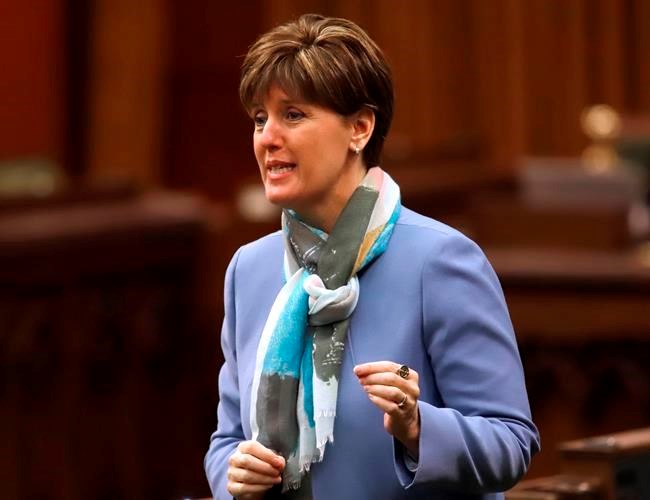OTTAWA — The federal government will distribute $30 million to Indigenous communities and about $65 million to local organizations across Canada to support food security during the COVID-19 pandemic, Agriculture Minister Marie-Claude Bibeau said.
At a virtual news conference Friday, Bibeau said Food Banks Canada and Breakfast Club of Canada will each receive $18.5 million, and Community Food Centres Canada, Second Harvest and The Salvation Army will also receive just under $9 million each.
"We are working very closely with the different organizations," Bibeau said in an interview.
"We follow their work. They keep us informed of the need they see in the field."
Ottawa originally announced the $100 million in October for the emergency food security fund, which had already received $100 million in the spring.
Prime Minister Justin Trudeau said food banks, local food organizations and Indigenous groups will be able to purchase and safely distribute food with the money, helping vulnerable people and communities.
"More than a third of Canadians who rely on food banks are children. That's unacceptable," Trudeau said at his own news briefing.
Indigenous Services Canada will get $30 million to boost its community support fund to help ensure access to adequate food in First Nations, Métis and Inuit communities.
Indigenous Services Minister Marc Miller said securing a reliable, affordable supply of food becomes a challenge during the winter months — one that will be greater this year due to the recent surge of COVID-19.
Indigenous communities, particularly remote ones, are among those most at risk, Miller said. "They're particularly vulnerable to any upset in the food supply chain."
Jessica McLaughlin of Long Lake 58 First Nation in northern Ontario said during a panel discussion following the ministerial news conference that every community needs tailored measures to deal with food security issues.
"There is no blanket solution, especially in a time of crisis," she said.
McLaughlin leads a group called Indigenous Food Circle that supports First Nations communities in Thunder Bay and other parts of northern Ontario.
She said her group had only $15,000 in its budget when the pandemic started earlier this year.
"We worked with this type of budget for the last four years," she said, adding, "we've always managed to scrounge up dollars to execute projects."
A Statistics Canada report this week said 14.6 per cent of respondents to a survey conducted in May reported experiencing food insecurity within the previous 30 days.
Glenn Van Gulik, a spokesman for The Salvation Army in Ottawa, said his organization has experienced a sizable increase in the number of requests for help.
"In far too many cases, these are individuals and families seeking support for the very first time."
Van Gulik said federal money has helped The Salvation Army provide support in about 400 Canadian communities.
In the early months of the pandemic, the organization's Ottawa branch partnered with the city's food bank to make deliveries of food hampers possible for those wary of leaving their homes to access local food banks, he said.
"The support of Agriculture and Agri-Food Canada came at a critical time," he said. "Food and other household items were in limited supply, and it would have been extremely challenging to purchase the food (we) needed without those funds."
This report by The Canadian Press was first published Dec. 18, 2020
———
This story was produced with the financial assistance of the Facebook and Canadian Press News Fellowship.
Maan Alhmidi, The Canadian Press



